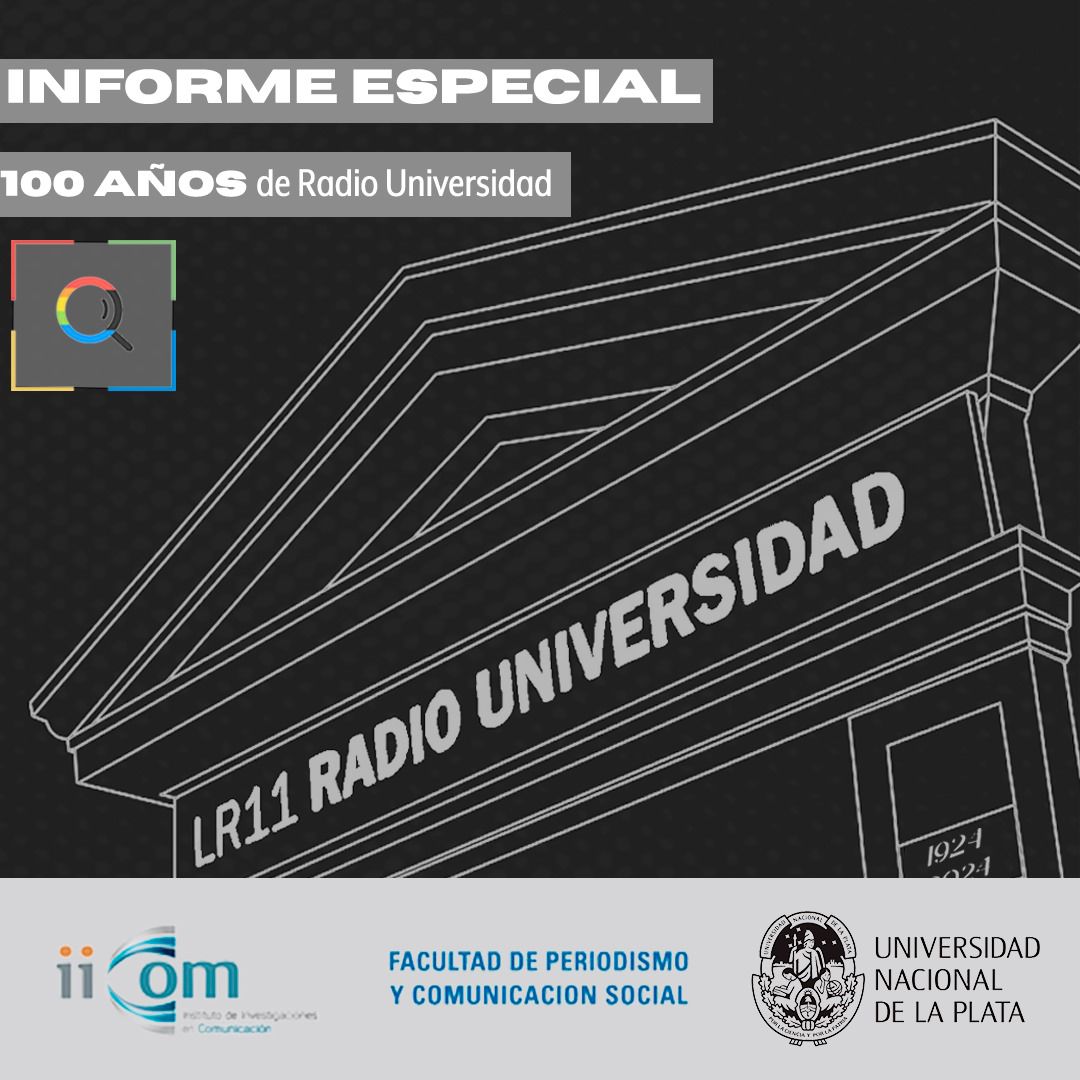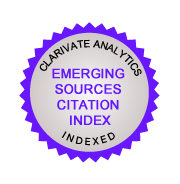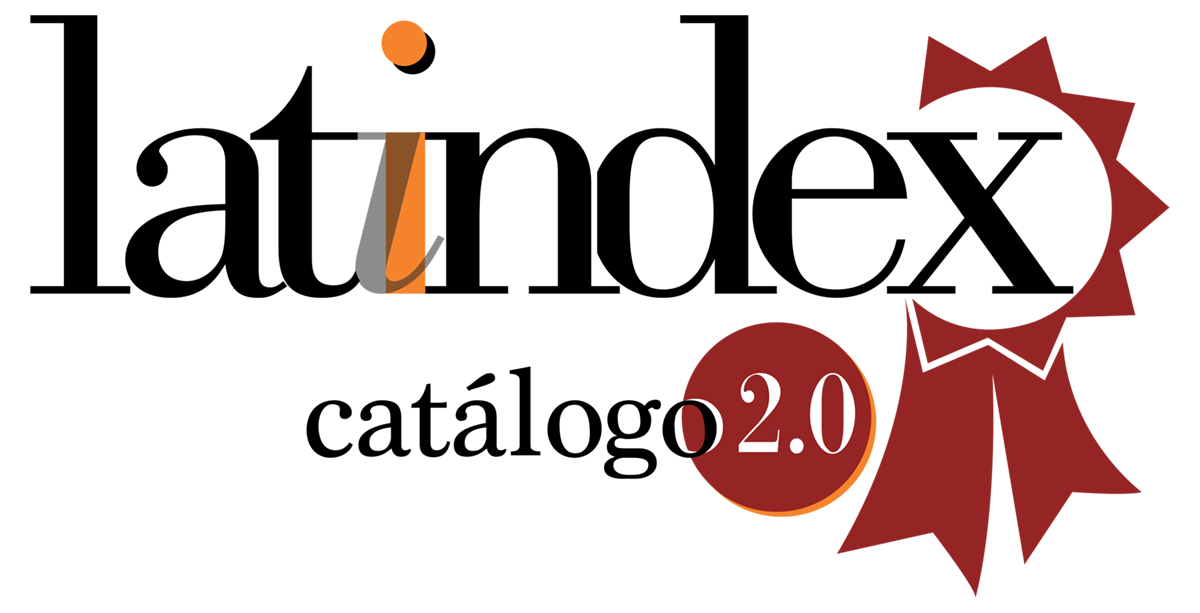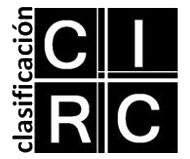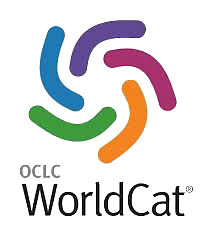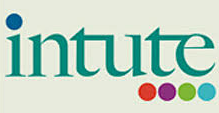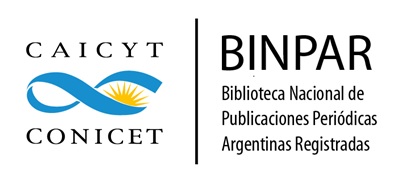Comunicación Política y Redes Sociales en América Latina
Perspectivas Epistemológicas en los Estudios del Sistema Político Peruano
DOI:
https://doi.org/10.24215/16696581e875Palabras clave:
comunicación política, redes sociales, epistemología racioempírica, América LatinaResumen
Este estudio aborda la comunicación política y las redes sociales en América Latina desde una perspectiva epistemológica, inspirada en las concepciones de Bunge sobre las ciencias sociales. A través de la revisión de 22 publicaciones sobre comunicación política y redes sociales en América Latina, se evidencia una necesidad de bases filosóficas más rigurosas para comprender mejor las teorías y metodologías. Pese a la relevancia de Perú en estas investigaciones, se insta a una orientación más deductiva y conceptual, subrayando la epistemología racioempírica como fundamental en el desarrollo del conocimiento científico social.
Descargas
Citas
Anastacio-Coello, L. & Montúfar-Calle, Á. (2023). Policy and Applied Technologies: Analysis of the Communicative Activities of Peru’s Presidential Candidates on Twitter and TikTok in the First Election Round in 2021. In P. C. López-López, D. Barredo, Á. Torres-Toukoumidis, A. De-Santis & Ó. Avilés (Eds.). Communication and Smart Technologies. Proceedings of ICOMTA 2022 (pp. 259-268). Springer.
Arbaiza, F.; Atarama-Rojas, T. & Atarama-Rojas, R. (2020). Twitter and Politics: An Analysis of the Account of Former Peruvian President@MartinVizcarraC Before and During the Pandemic. In Á. Rocha, D. Barredo, P. C. López-López & I. Puentes-Rivera (Eds.). Communication and Smart Technologies. Proceedings of ICOMTA 2021 (pp. 132-139). Springer.
Arnaboldi, V., Passarella, A., Conti, M., & Dunbar, R. (2017). Structure of ego-alter relationships of politicians in Twitter. Journal of Computer-Mediated Communication, 22(5), 231-247. https://doi.org/10.1111/jcc4.12193
Aliaga Lodtmann, C. F. (2021). Lucha política en Twitter del ciberespacio. Partidos políticos en Perú (2019-2020). Opinión Jurídica, 20(42), 485–508. https://doi.org/10.22395/ojum.v20n42a20
Barredo-Ibáñez, D., De-La-garza-montemayor, D.-J., Torres-Toukoumidis, Á., & López-López, P.-C. (2021). Artificial intelligence, communication, and democracy in Latin America: a review of the cases of Colombia, Ecuador, and Mexico. Profesional de La Información, 30(6). https://doi.org/10.3145/epi.2021.nov.16
Bos, L., van der Brug, W. & de Vreese, C. (2013). An experimental test of the impact of style and rhetoric on the perception of right-wing populist and mainstream party leaders. Acta Polit 48, 192–208. https://doi.org/10.1057/ap.2012.27
Bunge, M. (1985). Seudociencia e ideología. Alianza Universidad.
Bunge, M. (1999). Sistemas sociales y filosofía. Editorial Sudamericana.
Chadwick, A. (2011). Britain's first live televised party leaders’ debate: From the news cycle to the political information cycle. Parliamentary affairs, 64(1), 24-44. https://doi.org/10.1093/pa/gsq045
Cohaila, E. (2020). Empleo de las emociones en los post de los candidatos en las elecciones peruanas 2016. Revista de Comunicación, 19(1), 55-74. https://doi.org/10.26441/RC19.1-2020-A4.
D`Adamo, O., García Beaudoux, V., & Kievaky, T. (2015). Comunicación política y redes sociales: análisis de las campañas para las elecciones legislativas de 2013 en la ciudad de Buenos Aires. Revista Mexicana de Opinión Pública, 19, 107-125.
Dearing, J., & Rogers, E. M. (1996). Agenda-Setting. Sage.
Derks, D., Fischer, A. H., & Bos, A. E. (2008). The role of emotion in computer-mediated communication: A review. Computers in human behavior, 24(3), 766-785. https://doi.org/10.1016/j.chb.2007.04.004
Easton, D. (1965). A framework for political analysis. Prentice-Hall.
Enli, G. (2017). Twitter as arena for the authentic outsider: Exploring the social media campaigns of Trump and Clinton in the 2016 US presidential election. European journal of communication, 32(1), 50-61. https://doi.org/10.1177/0267323116682802
Enli, G. S., & Skogerbø, E. (2013). Personalized campaigns in party-centered politics: Twitter and Facebook as arenas for political communication. Information, Communication & Society, 16(5), 757-774. https://doi.org/10.1080/1369118X.2013.782330
Ess, C. M. (2017). Communication and technology. Annals of the International Communication Association, 41(3-4), 209-2012. https://doi.org/10.1080/23808985.2017.1392250
Fuchs, C. (2020). Marxism: Karl Marx’s Fifteen Key Concepts for Cultural and Communication Studies. Routledge. https://doi.org/10.1017/CBO9781107415324.004
Gerodimos, R., & Justinussen, J. (2015). Obama’s 2012 Facebook campaign: Political communication in the age of the like button. Journal of Information Technology & Politics, 12(2), 113-132. https://doi.org/10.1080/19331681.2014.982266
Giraldo-Luque, S., & Villegas-Simon, I. (2017). The use of social networks by parliaments as an instrument of political participation. A case study of Europe and Latin America. Professonal de la Información, 26(3), 430–437. https://doi.org/10.3145/epi.2017.may.09
Hegelich, S., & Shahrezaye, M. (2015). The communication behavior of German MPs on Twitter: preaching to the converted and attacking opponents. European Policy Analysis, 1(2), 155-174. https://doi.org/10.18278/epa.1.2.8
Hjarvard, S. (2013). The mediatization of culture and society. Routledge.
International Conference on Communication and Applied Technologies, ICOMTA 2022. (2023). Smart Innovation, Systems and Technologies.
International Conference on Communication and Applied Technologies, ICOMTA 2021. (2022). Smart Innovation, Systems and Technologies.
Jeffres, L. W., Atkin, D., & Neuendorf, K. A. (2002). A model linking community activity and communication with political attitudes and involvement in neighborhoods. Political Communication, 19(4), 387-421. https://doi.org/10.1080/01957470290055574
Kam, C. D. (2018). Does evolutionary cognitive psychology crowd out the better angels of our nature?. Behavioral and Brain Sciences, 41. https://doi.org/10.1017/S0140525X18000390
Lessa, J. (2020). Communicating Emotions through Technological Interfaces. In Love on Trial: Adjusting and Assigning Relationships (pp. 129-136). Brill. https://doi.org/10.1163/9781848880764_013
López-López, P. C., Oñate, P., & Rocha, Á. (2020). Social media mining, debate and feelings: digital public opinion’s reaction in five presidential elections in Latin America. Cluster Computing, 23(3), 1875–1886. https://doi.org/10.1007/s10586-020-03072-8
López-López, P.-C., & Oñate, P. (2019). From video politics to cyberpolitics: Debate among candidates and televisions in five presidential elections . Profesional de la Información, 28(5). https://doi.org/10.3145/epi.2019.sep.12
López-López, P.-C., & Vásquez-González, J. (2018). Thematic agenda and twitter: Presidential elections in Latin America during the 2015-2017 period . Profesional de la Información, 27(6), 1204–1214. https://doi.org/10.3145/epi.2018.nov.04
López, V. W. B. (2019). The Butterfly Effect of Social Media and its impact on Public Opinion. The revocation of the mayor of Lima, Peru . Estudios Sobre El Mensaje Periodístico, 25(1), 69–80. https://doi.org/10.5209/ESMP.63716
Lupien, P., Rincon, A., Lalama, A., & Chiriboga, G. (n.d.). Framing Indigenous protest in the online public sphere: A comparative frame analysis. New Media & Society. https://doi.org/10.1177/14614448221074705
Luhmann, N. (1984). Soziale Systeme; Grundrisse einer allgemeinen Theorie. Suhrkamp.
Mahner, M., & Bunge, M. (2000). Fundamentos de biofilosofía. Siglo XXI Editores.
Matalon, Y., Magdaci, O., Almozlino, A., & Yamin, D. (2021). Using sentiment analysis to predict opinion inversion in Tweets of political communication. Scientific reports, 11(1), 1-9. https://doi.org/10.1038/s41598-021-86510-w
Matassi, M., & Boczkowski, P. J. (2020). Social media in Ibero-America. Review article. Profesional de la Información, 29(1). https://doi.org/10.3145/epi.2020.ene.04
McCombs, M. E., & Shaw, D. L. (1972). The Agenda- Setting Function of Mass Media. Public Opinion Quarterly, 36, 176-187. https://doi.org/10.1086/267990
McDermott, R., & Hatemi, P. K. (2018). To go forward, we must look back: The importance of evolutionary psychology for understanding modern politics. Evolutionary Psychology, 16(2), https://doi.org/10.1177/1474704918764506
Mitchelstein, E., Matassi, M., & Boczkowski, P. J. (2020). Minimal Effects, Maximum Panic: Social Media and Democracy in Latin America. SOCIAL MEDIA + SOCIETY, 6(4). https://doi.org/10.1177/2056305120984452
Montúfar-Calle, Á., Atarama-Rojas, T., & Saavedra-Chau, G. (2022). The political activity analysis in social media during the first electoral round of the 2021 general elections in Peru. Revista de Comunicación, 21(1), 273–292. https://doi.org/10.26441/rc21.1-2022-a14
Nulty, P., Theocharis, Y., Popa, S. A., Parnet, O., & Benoit, K. (2016). Social media and political communication in the 2014 elections to the European Parliament. Electoral studies, 44, 429-444. https://doi.org/10.1016/j.electstud.2016.04.014
Ochoa González, O. (2000). Comunicación política y opinión pública. McGraw-Hill.
Papakyriakopoulos, O., Serrano, J. C. M., & Hegelich, S. (2020). Political communication on social media: A tale of hyperactive users and bias in recommender systems. Online Social Networks and Media, 15, 100058. https://doi.org/10.1016/j.osnem.2019.100058
Parsons, T. (1951). The Social System. Free Press.
Pena-Fernandez, S., Larrondo-Ureta, A., & Morales-I-Gras, J. (2022). Political and institutional communication and the media in times of pandemic. Analysis of the dialogue on vaccines in five Ibero-America countries. Revista de Comunicación, 21(1), 315–328. https://doi.org/10.26441/RC21.1-2022-A16
Ponce, M. (2018). Media and Politics: Bibliographic analysis on mediatization in the theoretical debate of political communication 1979-2017. Dixit, (29), 48–67. https://doi.org/10.22235/d.v0i29.1697
Puertas-Hidalgo, R., Carpio-Jiménez, L., & Suing, A. (2019). Political communication and social networks. Twitter: Comparative analysis of the presidencies of the Republic of Latin America . In Iberian Conference on Information Systems and Technologies, CISTI (Vol. 2019-June). Departamento de Ciencias de la Comunicación, Universidad Técnica Particular de Loja, Loja, Ecuador. https://doi.org/10.23919/CISTI.2019.8760878
Puertas-Hidalgo, R., Mora-Romero, K., & Carpio Jiménez, L. (2018). Facebook as a political communication 2.0 tool subject study: Official accounts of the presidencies of Latin America . In Iberian Conference on Information Systems and Technologies, CISTI (Vol. 2018-June, pp. 1–7). Departamento de Ciencias de la Comunicación, Universidad Técnica Particular de Loja, Loja, Ecuador. https://doi.org/10.23919/CISTI.2018.8399448
Rantes-García, G. M. & Vite-León, V. O. (2023). Digital Activism on YouTube. The Representation of Power and Counter-Power Relations in a Video Activism Piece During the Second Round of the 2021 Presidential Elections in Peru. In P. C. López-López, D. Barredo, Á. Torres-
Toukoumidis, A. De-Santis & Ó. Avilés (Eds.). Communication and Smart Technologies. Proceedings of ICOMTA 2022 (pp. 191-200). Springer.
Rodríguez-Estrada, A. (2018). Las redes de citación como elemento de construcción del campo científico: análisis de la comunicación política en México. Palabra Clave, 21(3), 641–672. https://doi.org/10.5294/pacla.2018.21.3.2
Ross, K., & Bürger, T. (2014). Face to face (book) Social media, political campaigning and the unbearable lightness of being there. Political Science, 66(1), 46-62. https://doi.org/10.1177/0032318714534106
Salzman, R. (2019). Going deeper: Social media use and the development of democratic attitudes in Latin America. Global Media and Communication, 15(1), 85–101. https://doi.org/10.1177/1742766518818871
Semertzidis, N., Scary, M., Andres, J., Dwivedi, B., Kulwe, Y. C., Zambetta, F., & Mueller, F. F. (2020, April). Neo-Noumena: Augmenting Emotion Communication. In Proceedings of the 2020 CHI conference on human factors in computing systems (pp. 1-13). https://doi.org/10.1145/3334480.3383163
Stieglitz, S., & Dang-Xuan, L. (2013). Emotions and information diffusion in social media—sentiment of microblogs and sharing behavior. Journal of management information systems, 29(4), 217-248. https://doi.org/10.2753/MIS0742-1222290408
Strömbäck, J. (2011). Mediatization of politics: Toward a conceptual framework for comparative research. In E. Bucy & L. Holbert (Eds.), The sourcebook for political communication research: Methods, measures, and analytical techniques (pp. 367-382). Routledge.
Theocharis, Y., Lowe, W., Van Deth, J. W., & García-Albacete, G. (2015). Using Twitter to mobilize protest action: online mobilization patterns and action repertoires in the Occupy Wall Street, Indignados, and Aganaktismenoi movements. Information, Communication & Society, 18(2), 202-220. https://doi.org/10.1080/1369118X.2014.948035
Waisbord, S., & Amado, A. (2017). Populist communication by digital means: presidential Twitter in Latin America. Information Communication & Society, 20(9), 1330–1346. https://doi.org/10.1080/1369118X.2017.1328521
Zulianello, M., Albertini, A., & Ceccobelli, D. (2018). A Populist Zeitgeist? The Communication Strategies of Western and Latin American Political Leaders on Facebook. The International Journal of Press/Politics, 0(0), 1–19. https://doi.org/10.1177/1940161218783836
Descargas
Publicado
Cómo citar
Número
Sección
Licencia
La aceptación de un original por parte de la revista implica la cesión no exclusiva de los derechos patrimoniales de los/as autores/as en favor del editor, quien permite la reutilización, luego de su edición (postprint), bajo una Licencia Creative Commons Atribución-NoComercial-CompartirIgual 4.0 Internacional (CC BY-NC-SA 4.0)
Acorde a estos términos, el material se puede compartir (copiar y redistribuir en cualquier medio o formato) y adaptar (remezclar, transformar y crear a partir del material otra obra), siempre que a) se cite la autoría y la fuente original de su publicación (revista y URL de la obra), b) no se use para fines comerciales y c) se mantengan los mismos términos de la licencia.
La cesión de derechos no exclusivos implica que luego de su edición (postprint) en Question las/os autoras/es pueden publicar su trabajo en cualquier idioma, medio y formato; en tales casos, se solicita que se consigne que el material fue publicado originalmente en esta revista.
Tal cesión supone, también, la autorización de los/as autores/as para que el trabajo sea cosechado por SEDICI, el repositorio institucional de la Universidad Nacional de La Plata, y sea difundido en las bases de datos que el equipo editorial considere adecuadas para incrementar la visibilidad de la publicación y de sus autores/as.
Asimismo, la revista incentiva a las/os autoras/es para que luego de su publicación en Question depositen sus producciones en otros repositorios institucionales y temáticos, bajo el principio de que ofrecer a la sociedad la producción científica y académica sin restricciones contribuye a un mayor intercambio del conocimiento global.

